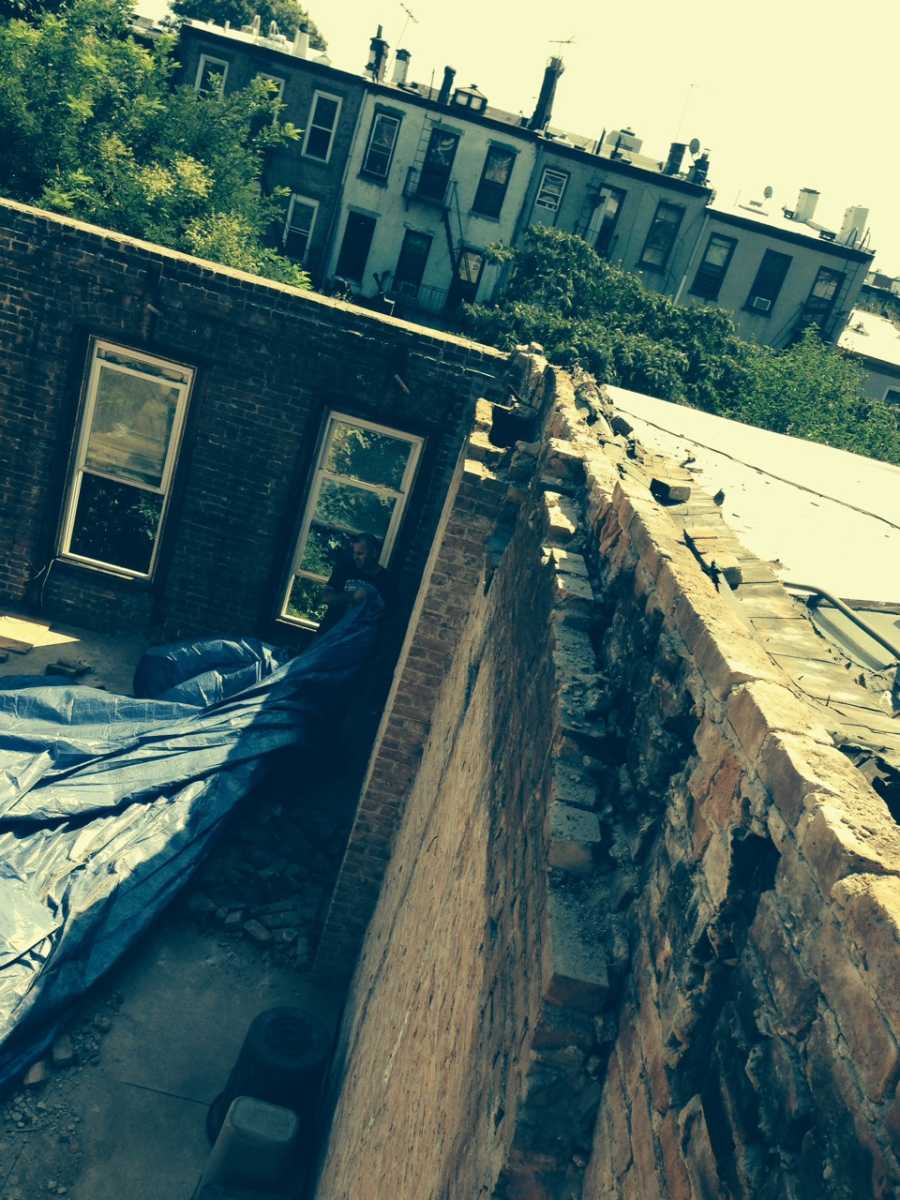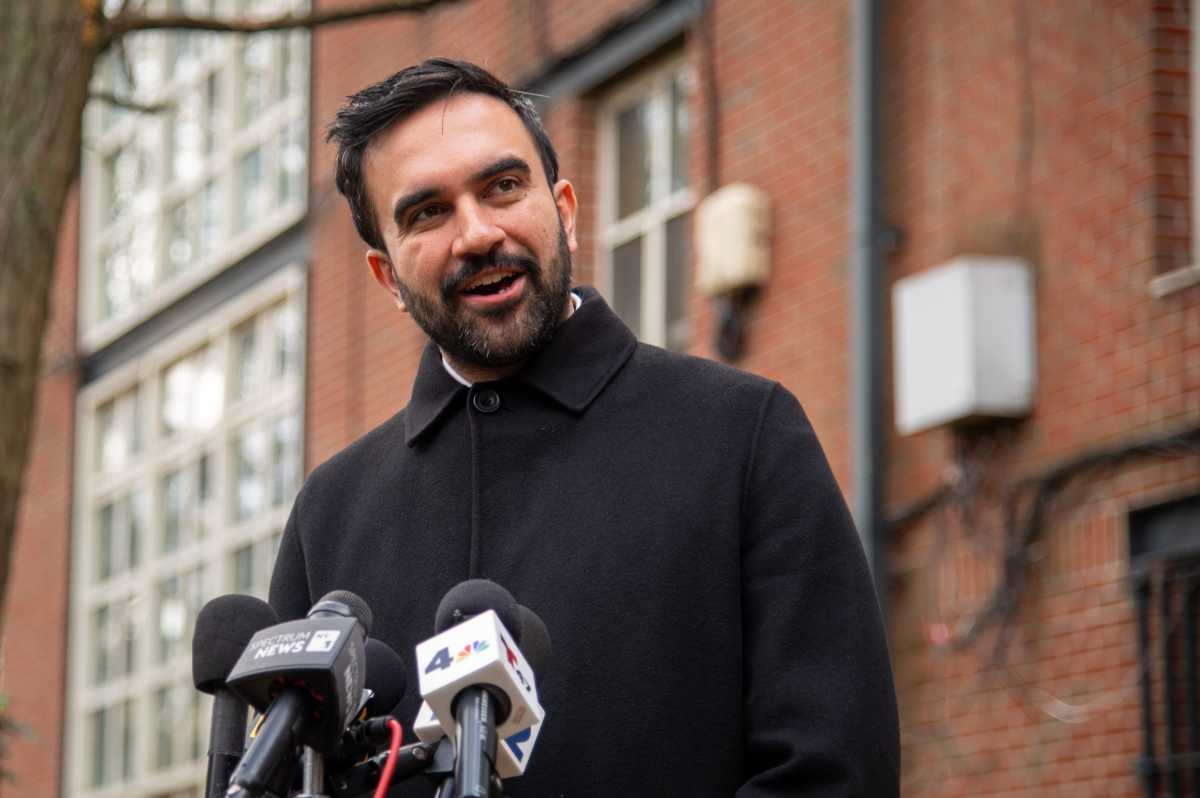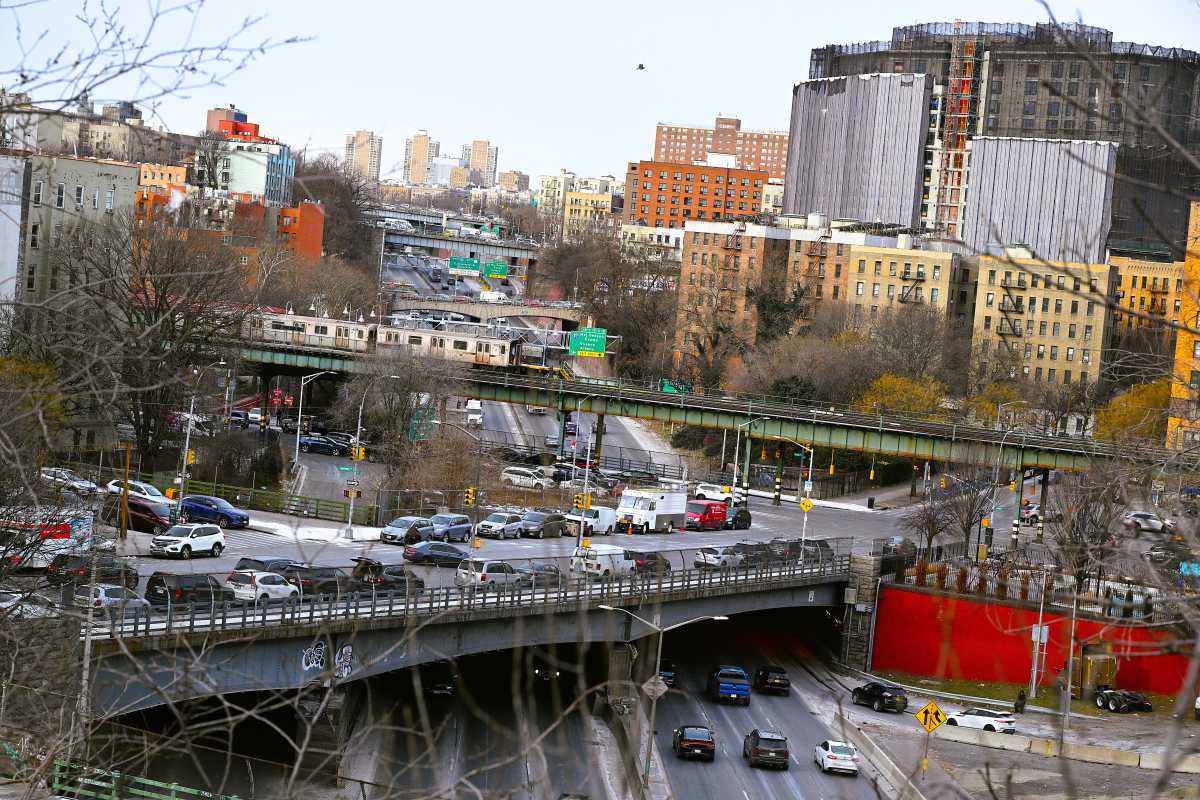Special from Our Time Press

To Bedford-Stuyvesant homeowner Eric Nathaniel this week’s massive bust of 50 people including City Department of Buildings (DOB) and Department of Housing Preservation and Development (“HPD”) employees, property managers and owners, expeditors, contractors and one engineer was more of an affirmation then news.
That’s because Nathaniel is one of several homeowners in the neighborhood that have been complaining to City Councilman Robert Cornegy, Borough President Eric Adams, Our Time Press and just about anybody who would listen that their brownstone block was being bought up by shifty developers who have done shoddy work – often without permits – while building inspectors have turned a blind eye.
“The guy next door tried to go up two additional stories and the way they were installing it there was no way a building inspector would come here and approve it,” said Nathaniel, who has lived in the neighborhood for 24 years – the last 22 of which has been in his two-story brownstone at 390 Kosciuszko Street between Marcus Garvey Blvd. and Lewis Avenue.
Nathaniel said when Joel Karpen, the owner and new developer of the adjacent property at 392 Kosciuszko Street, drilled four holes through his tenant’s walls on the second floor he called the city building inspector who put a stop work order on the renovation.
After the holes were repaired, Karpen came back with a crane and started putting I-beams up. Nathaniel brought in a friend who was in construction, and who told him the work was being done wrong and very dangerously.
“Right now there’s a new issue because he removed several rows of bricks creating extensive water damage from the top floor down to the cellar. He’s trying to capitalize due to the gentrification in Bed-Stuy by increasing the square footage with an additional two stories, and he doesn’t have permits for the work he’s doing. Why he was able to still do the work was beyond me,” said Nathaniel.
Yvette Welsh, who lives a block over on Lafayette Avenue between Marcus Garvey Blvd and Lewis Avenue, said the same thing is happening on her block. People have been swindled out of their houses with six and seven houses being sold like a domino effect, she said.
Welsh said she can’t understand how one building inspector will issue a stop work order and then another will come just a few days later and say everything is being done properly.
The 50 defendants were indicted with crimes including bribery, bribe receiving, falsifying business records, tampering with public records, and official misconduct on properties throughout Manhattan and Brooklyn including numerous properties in Bed-Stuy.
The two-year investigation revealed evidence of about $450,000 worth of alleged bribes in numerous, distinct schemes between 16 DOB and HPD employees and 22 property managers and owners, six expeditors, two contractors, and one engineer.
Despite writing letters to Cornegy and Adams, neither official helped to alleviate the situation, said Nathaniel. Welsh also contacted Cornegy and Adams, and said Cornegy did succeed in getting another building inspector out to a property on her block.
However, Welsh said the officials per se aren’t to blame, but rather a culture that is systematically gentrifying her neighborhood in which some longtime homeowners are holding out from selling their property because they own it free and clear and only have to pay $3,000 and $4,000 a year in property taxes. This will change with these illegal conversions because it will bring the taxes up to $6,000 and $7,000 and then these residents will be forced to sell or they will lose their property, she warned, she said.
Cornegy said most tenants and community residents don’t have the financial resources and professional help that large property owners and developers have.
“When they see a problem on a construction site or experience a violation in a space they rent, they rely on DOB & HPD to back them up and act in the public interest. So when city employees instead act to line their own pockets, it makes our communities even more vulnerable. I hope that in addition to punishing the specific individuals involved, these prosecutions remove the temptation for others to behave corruptly and help to restore public confidence in the system,” said Cornegy.










